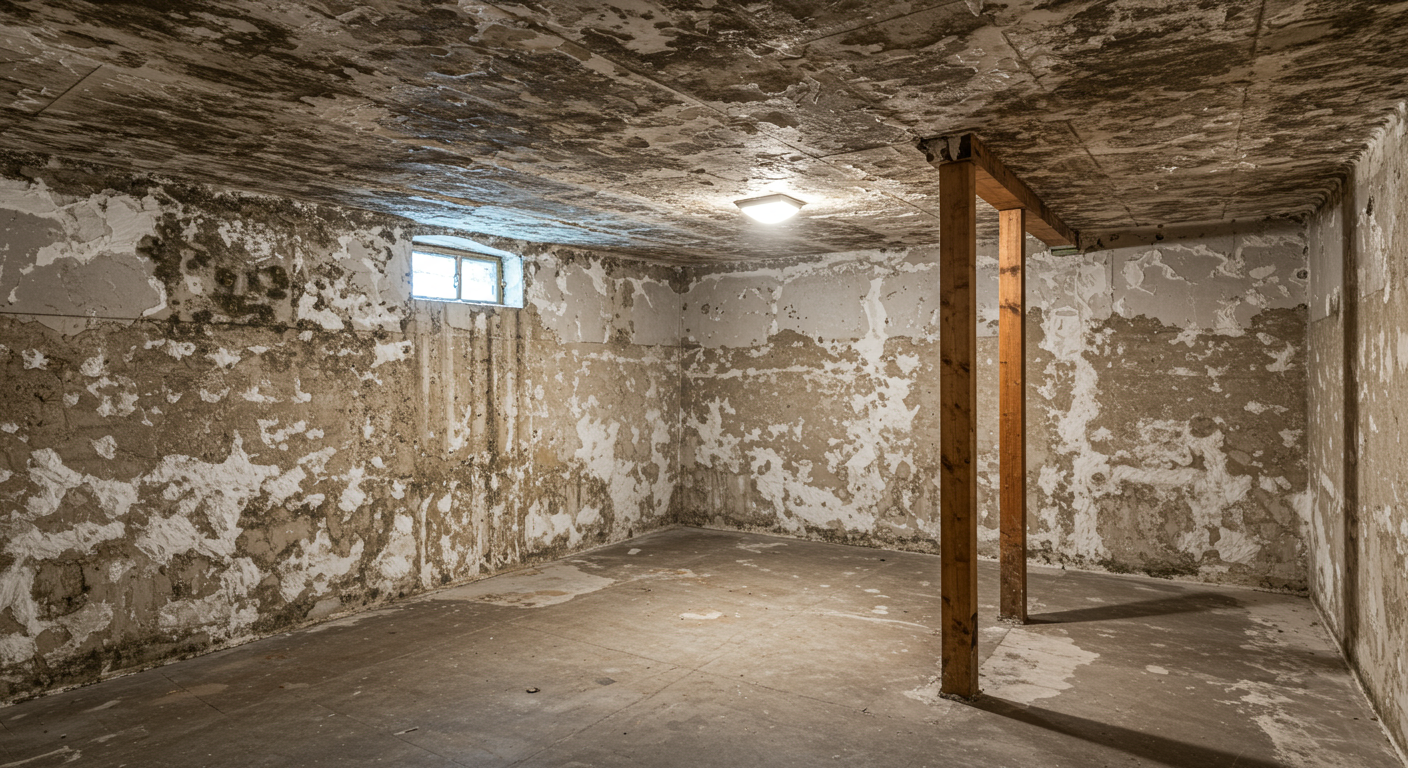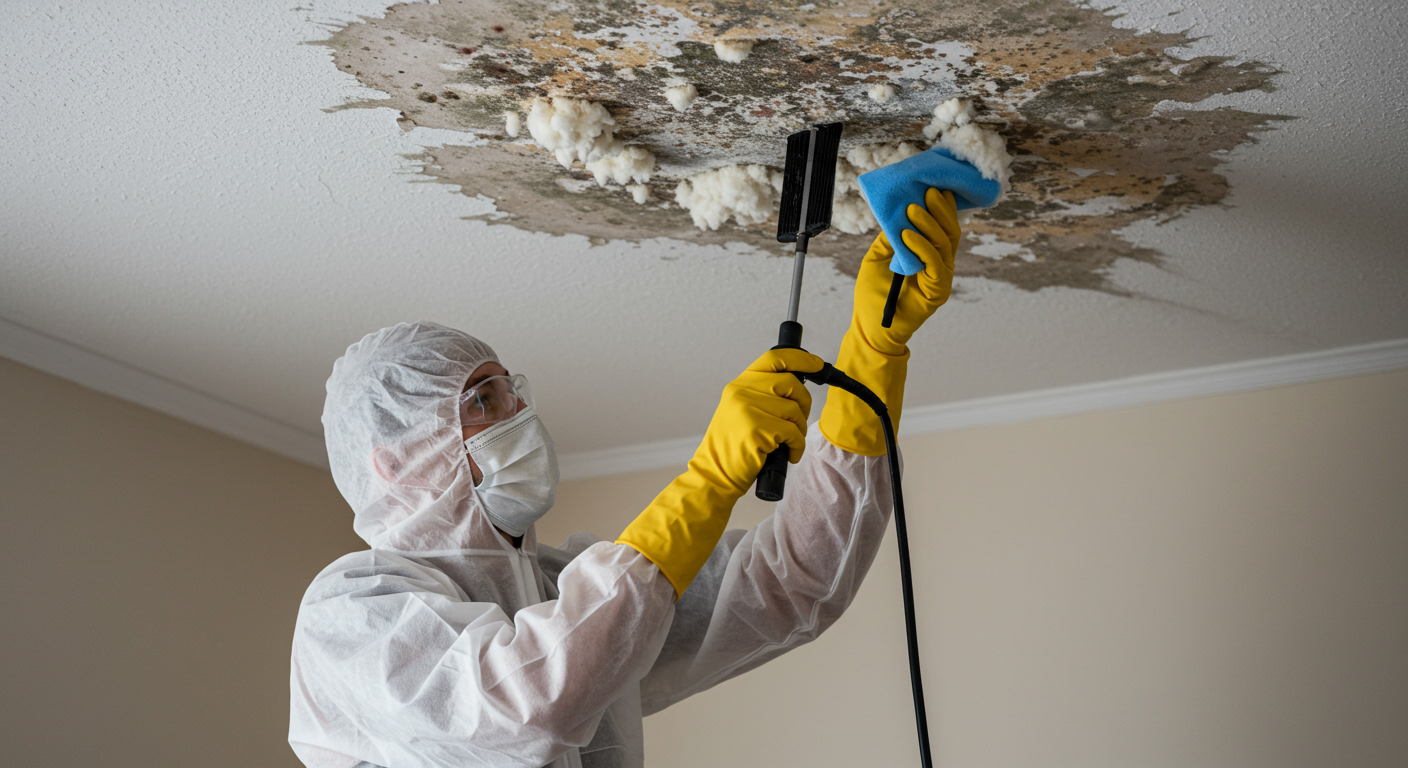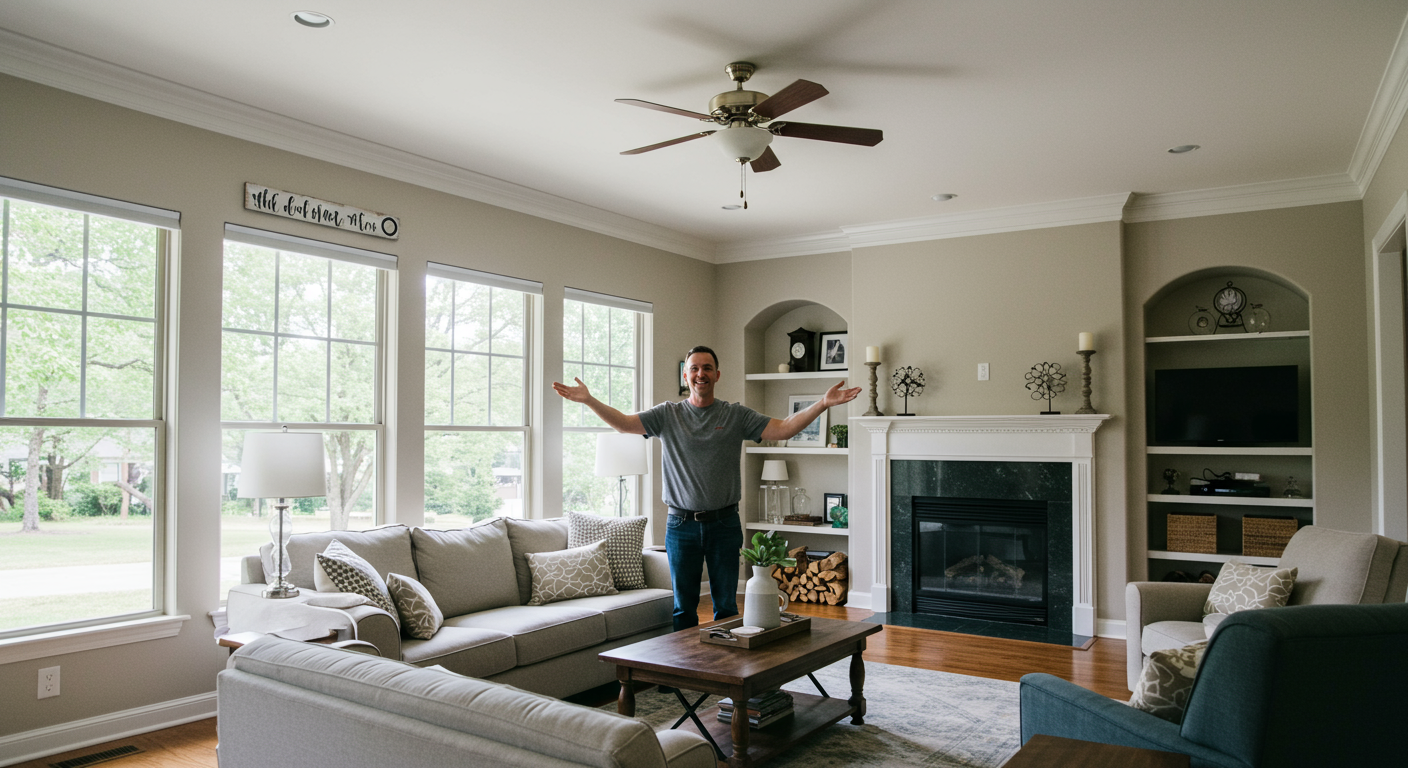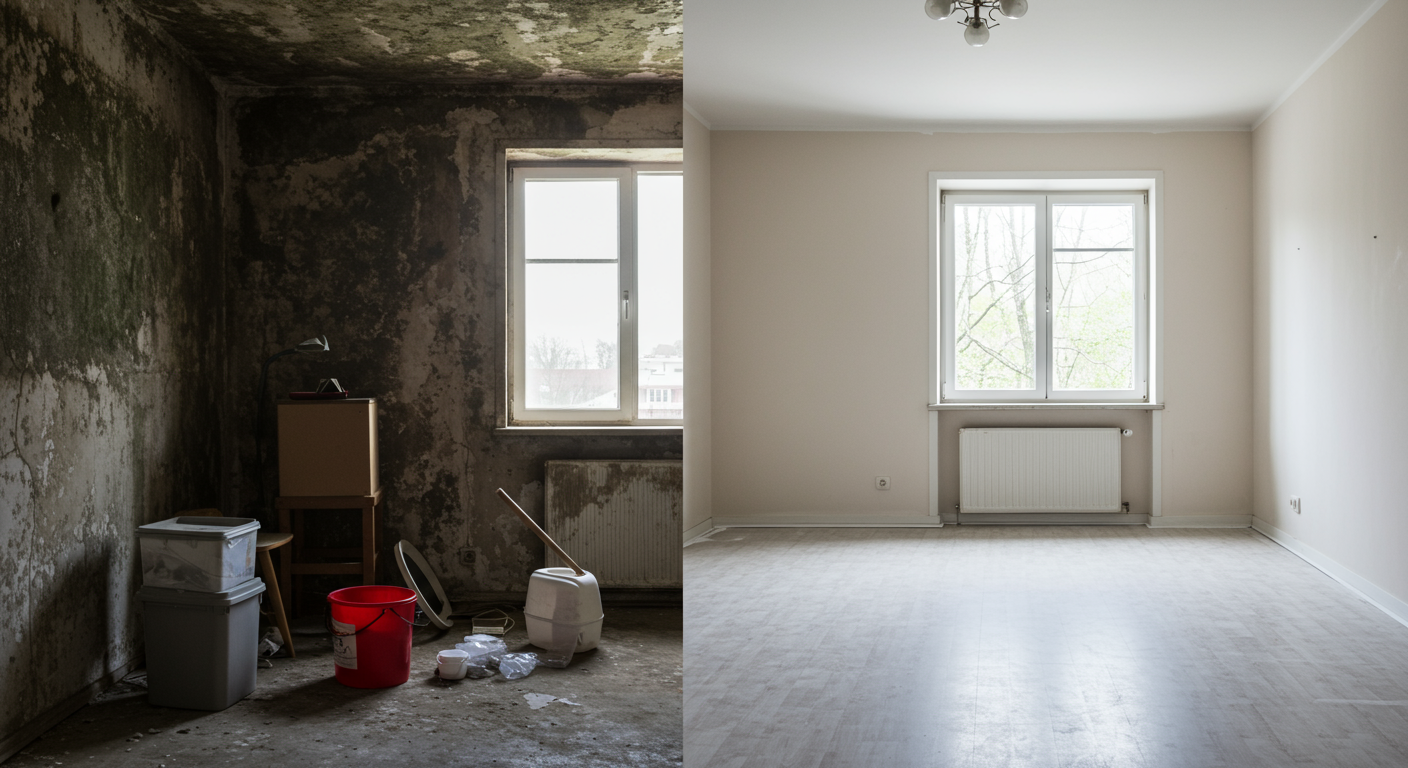White mold is a common issue for homeowners, particularly in humid climates like Atlanta, GA. This article delves into the risks, identification, and removal of white mold, providing practical advice to protect your home and health.
What is White Mold?
White mold is a type of fungus that thrives in damp, humid environments. Unlike black mold, which is often slimy, white mold appears powdery or fluffy. It can grow on various surfaces, including wood, drywall, and fabrics, making it a persistent problem in homes.
In Atlanta, common species of white mold include Aspergillus and Penicillium. These molds flourish in areas with high humidity, such as basements, bathrooms, and attics. Identifying and addressing white mold early is crucial to preventing its spread and minimizing health risks.
Health Risks Associated with White Mold
Exposure to white mold can lead to several health issues, particularly for individuals with pre-existing conditions or weakened immune systems. The most common health risks include:
- Allergic Reactions: Symptoms like sneezing, itchy eyes, and skin irritation can occur when exposed to mold spores.
- Respiratory Issues: Prolonged exposure may cause coughing, wheezing, or even asthma attacks.
- Vulnerable Populations: Infants, the elderly, and individuals with respiratory conditions are at higher risk of complications from mold exposure.
Understanding these risks underscores the importance of addressing mold problems promptly. For more information on mold-related health concerns, consider reviewing guidelines provided by the CDC.
Identifying White Mold in Your Home
Detecting white mold early can save you time, money, and potential health issues. Here are some key signs to look for:
- Visual Indicators: White mold often appears as a powdery substance on walls, ceilings, or furniture. It may look similar to efflorescence, a harmless salt deposit, but mold tends to have a fuzzy texture.
- Common Growth Areas: In Atlanta homes, white mold is frequently found in basements, crawl spaces, and bathrooms due to the region’s high humidity levels.
If you suspect mold but are unsure, a professional inspection can help confirm its presence. Learn more about mold inspection services in the area by visiting Comprehensive Mold Inspection Services in Johns Creek, GA.

Effective Removal and Prevention Strategies
Addressing white mold requires a combination of removal and preventive measures. Here’s how you can tackle the problem:
DIY Removal Steps
For small mold infestations, you can take the following steps:
- Wear Protective Gear: Use gloves, a mask, and goggles to protect yourself from mold spores.
- Clean the Area: Scrub the affected surface with a mixture of water and detergent. Avoid using bleach, as it may not effectively kill mold on porous surfaces.
- Dry Thoroughly: Ensure the area is completely dry to prevent mold from returning.
While DIY methods can be effective for minor cases, larger infestations require professional intervention.
When to Call Professionals for Mold Remediation
If the mold covers a large area or has penetrated deep into walls or floors, it’s time to call in experts. Professional mold remediation services use advanced techniques to remove mold and prevent its recurrence. For reliable services in the Atlanta area, check out Expert Water Restoration Services in Atlanta, GA.
Prevention Tips
Preventing white mold is often easier than removing it. Here are some strategies to keep your home mold-free:
- Control Humidity: Use dehumidifiers and air conditioners to maintain indoor humidity levels below 60%.
- Improve Ventilation: Ensure proper airflow in bathrooms, kitchens, and other moisture-prone areas.
- Fix Leaks Promptly: Address plumbing leaks and roof damage to eliminate potential water sources for mold.
For additional tips on maintaining a mold-free home, explore Effective Mold Removal Solutions for Homes in Marietta, GA.
Conclusion
White mold is a serious issue that can affect both your home and health. By understanding its risks, identifying it early, and taking effective removal and prevention measures, you can protect your family and property. If you’re dealing with a mold problem in Atlanta, don’t hesitate to seek professional help to ensure a safe and healthy living environment.


